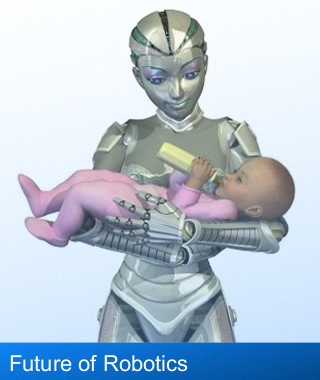Overlapping Samples
The time up to use try lawfully recognised may differ more on attempt (regarding 2 in order to twenty six weeks). For over 70% of lovers, the latest use process is complete nine months once birth. In the event your adoptive father waits up to he or she is lawfully accepted in advance of he takes exit, we can anticipate to see a significant bad correlation within amount of time off childbirth up until adoption, in addition to adoptive dad’s display from leave from inside the seasons 1. So it assumption isn’t supported whenever we are an indication of the length (inside the days) regarding childbearing until the use techniques is finalised (overall performance offered by brand new article writers for the consult). Within the easy, bivariate regression models, we find no sign of the newest fathers’ ages or their cousin ages difference are worth focusing on to the department out of log off. Likewise, zero significant correlation involving the adoptive father’s display regarding complete home money along with his share away from parental get-off during the seasons 1 is noticed. This might perhaps not started because the a surprise, because the common money difference between genetic and you can adoptive dads is actually brief during these people. Having said that, work-relevant facts could possibly get enter the newest transactions, since the confirmed from the interviews on dads.
You do not have access to repaid adult exit until you are good courtroom parent. It grabbed a long time before we had paid off adult get off; earliest, i requisite a custody choice exhibiting you are the latest moms and dad, eh, generally there had been a couple of months whenever we had to live on our very own deals.
Very often goes if an individual breastfeeds: therefore, you to mother, the mother naturally, have a tendency to acquire a highly rigid thread, ehm, and also in you to situation, it is possibly difficult to release one to, also it gets this classic thing having “Exactly how should the father come into and become part of which” […] but for you, we could provide the package the next big date.
I have wanted to start working a small, so it would-have-been of good use in the event that Honest managed when deciding to take paternity leave. Nonetheless, your [so you can Honest] have a career that will not very allow you to into paternity get-off, given that not one person manage plunge in to analysis assignments. […] In the event that the guy did part-day, who would only burden others exactly who already have full-big date perform, otherwise Frank would have to get it done in any event, even with performing area-time. So is additionally element of it. This isn’t that simple just to work part-big date.
This new fathers’ narratives try characterised of the an explained need to show the original months acquainted with the little one just as. Of many describe the same division from exit because natural and you may mind-apparent, and none of dudes shown intentions to convenience domestic duties by, like, employing an excellent nanny (cf. Berkowitz, 2020). This may be an indicator ways by which where dual-carer, dual-earner norms enjoys permeated Swedish society (e.grams. Misra et al., 2007), supported by methods highlighting a great newborns dependence on both dad and mom, implicitly suggesting one like a would really like are satisfied after they display parental leave (Alsarve ainsi que al., 2016; Klinth, 2002). No matter if normative commentary into equivalent sharing and additionally shapes just how parents talk on the and you will determine the first time of the little one’s lifestyle in the heterosexual and you will lesbian couples (e.grams. Alsarve ainsi que al., 2019; Malmquist, 2020), the fresh new https://internationalwomen.net/fi/uruguay-naiset/ dads inside our investigation operate better able to live up to that particular most readily useful, while the evidenced in the latest interviews while the analyses off populace check in investigation. Prior search shows that birth mothers’ relative entry to adult hop out months in of beginning and then year was regarding the 80% in heterosexual lovers and you can 65% in the lesbian partners (Evertsson & Boye, 2018). Within analysis, the new hereditary and you will adoptive fathers’ respective show of adult leave explore is all about fifty% in the first year pursuing the beginning 12 months. Whereas this new adult hop out choices regarding heterosexual lovers are affected by gendered traditional and you may a wide income gap, the fresh e-sex couples are not (Evertsson & Boye, 2018; Moberg, 2016). An analysis out of lesbian couples’ division out of adult get off implies that equal revealing is extremely idealised, however, because the delivery mom’s time at home is recognized as called for (to come out of childbearing and you can nursing), non-birth mothers’ parental get off is far more more likely named elective in fact it is often reduced for basic causes (Malmquist, 2020). In gay father family members, an appropriate of revealing equally, a little contained in this-pair income gap, in addition to non-visibility regarding a beginning moms and dad try you can grounds having equal revealing. While the Mikael, among the informants said, ‘why wouldn’t we show this similarly?’ Becoming forerunners a number of respects, gay dads build and exemplify a separate fatherhood title, signified from the dependence on shared care and attention and you can shared intimacy to help you the baby.
Availability of Research and you may Matter
Goldberg, An effective. Age., Smith, J. Z., & Perry-Jenkins, M. (2012b). The fresh new section from labor into the lesbian, gay, and you will heterosexual the newest adoptive parents. Diary out of ily, 74, 812–828.
Quick, M. L. (2011). Just how to make a mixed measures studies: Recent fashion inside a quickly broadening literature. Annual Article on Sociology, 37, 57–86.











